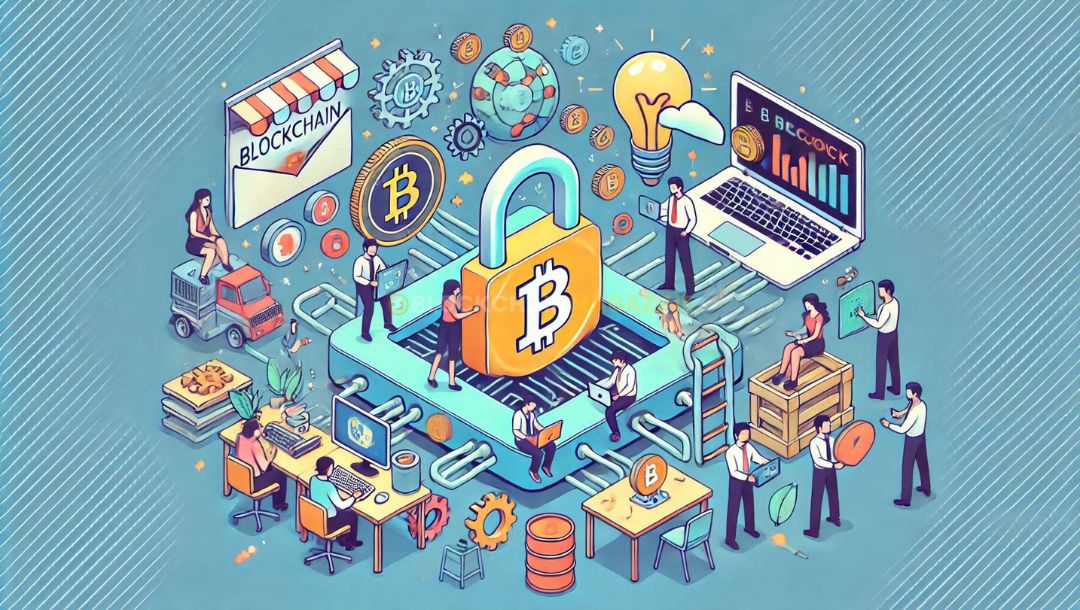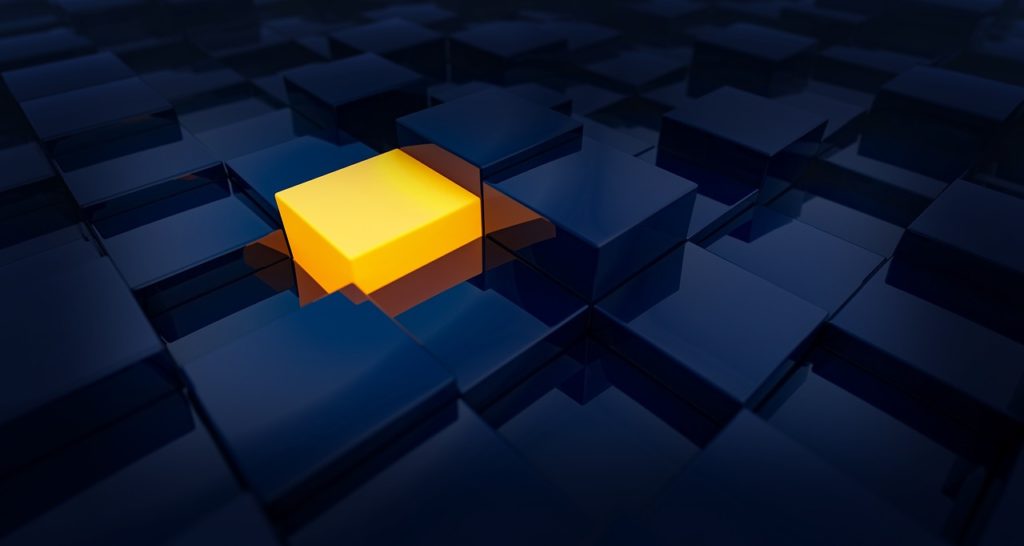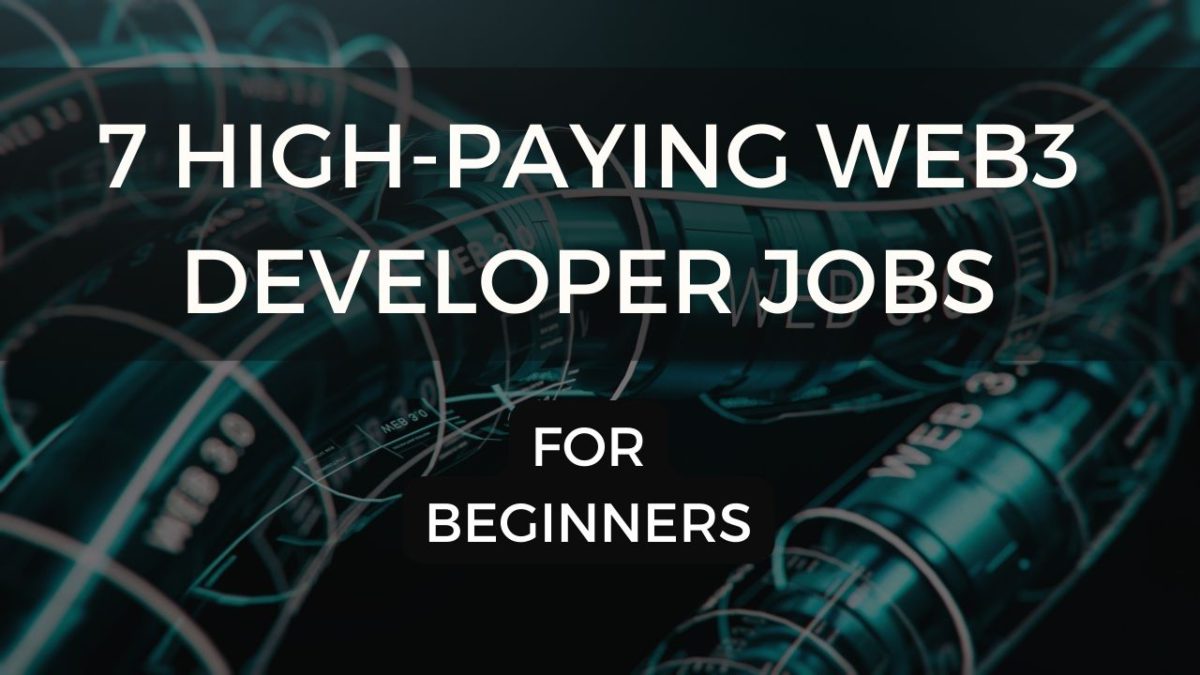Earn Your MIT Blockchain Certificate: Unlock New Opportunities
Thinking about diving into the world of blockchain? The MIT Blockchain Certificate could be your ticket. This program is designed to give you a solid foundation in blockchain technology, its applications, and how it can be a game-changer for businesses. Whether you’re a tech professional or just curious about blockchain, earning this certificate might open up new doors for you.
Key Takeaways
- The MIT Blockchain Certificate offers a deep dive into blockchain technology and its business applications.
- Participants will learn about key blockchain concepts like distributed ledgers, cryptography, and smart contracts.
- The course includes insights from leading experts in blockchain and cryptoeconomics.
- Graduates receive a certificate from MIT Sloan, boosting their credentials in the tech industry.
- The program is suitable for professionals across various sectors looking to integrate blockchain into their work.
Understanding the MIT Blockchain Certificate
What the Certificate Entails
The MIT Blockchain Certificate is a prestigious accolade that recognizes a deep understanding of blockchain technology and its applications. The program is structured to provide a solid foundation in blockchain concepts, covering everything from distributed ledgers to smart contracts. Participants will engage in a series of modules that delve into topics such as the double-spending problem, cryptoeconomics, and the design of digital platforms using tokens. This certificate signifies a comprehensive grasp of blockchain’s potential in transforming business operations and digital interactions.
Benefits of Earning the Certificate
Earning the MIT Blockchain Certificate opens up a world of opportunities. Here’s what you get:
- Recognition from a world-renowned institution: MIT’s name carries weight in the tech industry.
- Advanced skill set: You’ll gain skills in blockchain technology that are applicable across various sectors.
- Networking opportunities: Connect with peers and industry leaders who are shaping the future of blockchain.
Additionally, the certificate can be a stepping stone to further education, such as an MIT Sloan Executive Certificate.
How to Enroll in the Program
Enrolling in the MIT Blockchain Certificate program is straightforward. Follow these steps:
- Register online: Visit the MIT Sloan website to sign up for the program.
- Meet the prerequisites: Ensure you have a basic understanding of blockchain technology.
- Complete the application: Fill out the necessary forms and submit any required documents.
- Pay the tuition: Once accepted, pay the program fees to secure your spot.
The MIT Blockchain Certificate is not just a credential; it’s a gateway to understanding and leveraging blockchain technology in a rapidly evolving digital landscape.
Exploring Blockchain Technology
The Evolution of Blockchain
Blockchain technology has come a long way since its inception. Initially, it was just a concept tied to the mysterious world of cryptocurrencies. But now, it’s a decentralized structure that’s reshaping how we store and share information. From its early days of powering Bitcoin, blockchain has evolved into a versatile tool used across industries. It started as a solution to the double-spending problem in digital currencies but has grown into a system that ensures transparency and security in data management. The journey of blockchain is marked by innovations that continually expand its potential applications.
Key Components of Blockchain
Understanding blockchain isn’t just about knowing its history; it’s about grasping its core components. At its heart, blockchain is a chain of blocks, each containing crucial information. These blocks are linked and secured using cryptography. One of the standout features is the distributed ledger, which means that every participant in the network has access to the entire database. This ensures transparency and reduces the risk of fraud. Key components include:
- Blocks: Basic units that store data.
- Nodes: Devices or entities that maintain and validate the blockchain.
- Consensus Mechanisms: Methods like Proof of Work (PoW) and Proof of Stake (PoS) that validate transactions and add new blocks to the chain.
Blockchain Applications Across Industries
Blockchain’s impact isn’t confined to just one area. It’s making waves across various industries. In finance, it’s revolutionizing how transactions are conducted, offering a secure and transparent method of transferring assets. In healthcare, it’s being used to securely store patient records, ensuring privacy and data integrity. The supply chain sector benefits from blockchain by enhancing traceability and reducing fraud. Even in the realm of digital identity, blockchain provides a secure framework for identity verification. The versatility of blockchain applications is vast and continually growing as more industries recognize its potential benefits.
Blockchain isn’t just a technology; it’s a catalyst for change across sectors. Its ability to provide transparency, security, and efficiency is transforming traditional processes, paving the way for a new era of digital innovation.
Course Structure and Content
Modules and Topics Covered
The MIT Blockchain Certificate program is structured around several key modules that dive into the essentials of blockchain technology. Each module is designed to build on the previous one, ensuring a comprehensive understanding of the subject. Here’s a quick look at what you can expect:
- Introduction to Blockchain Technology: This module lays the groundwork, covering the history and basics of blockchain.
- Cryptography and Security: Dive into the technical aspects that make blockchain secure.
- Smart Contracts and Decentralized Applications (DApps): Learn how blockchain enables smart contracts and the creation of DApps.
- Blockchain Platforms: Explore different blockchain platforms like Ethereum and Hyperledger.
- Regulatory and Ethical Considerations: Understand the legal landscape and ethical issues surrounding blockchain.
Learning Outcomes and Skills Acquired
By the end of the course, participants will have acquired a robust set of skills that are highly sought after in the industry. Graduates will be able to design, implement, and manage blockchain solutions. Key skills include:
- Proficiency in blockchain architecture and operations.
- Ability to develop smart contracts and DApps.
- Understanding of blockchain security protocols.
- Knowledge of the regulatory environment affecting blockchain technology.
Assessment and Certification Process
The assessment process is thorough, ensuring that students have grasped the course material effectively. Here’s how it works:
- Weekly Quizzes: Test your knowledge regularly to stay on track.
- Final Project: Apply what you’ve learned in a comprehensive project.
- Peer Reviews: Engage with fellow students to provide and receive feedback.
Upon successful completion, you’ll earn a certificate from MIT, a credential that can significantly boost your career prospects. The growing excitement in the cryptocurrency market makes this certification even more valuable, as industries seek skilled professionals to navigate this dynamic field.
“The course not only teaches blockchain technology but also equips you with the skills to apply it in real-world scenarios.”
Career Opportunities with a Blockchain Certificate
Roles and Positions Available
Getting a blockchain certificate can open doors to a bunch of new job roles. You might find yourself working as a blockchain developer, where you’d be coding and creating the backbone of blockchain systems. Or maybe you’d prefer to be a blockchain consultant, advising companies on how to integrate blockchain into their operations. Smart contract developers are also in high demand, as they focus on creating and managing digital contracts that execute automatically when certain conditions are met. Other roles include project managers specifically for blockchain projects, and even UX designers who ensure the user interface of blockchain applications is spot-on.
Industries Seeking Blockchain Experts
Blockchain isn’t just for tech companies anymore. Industries like finance, healthcare, and supply chain management are all looking for people who know their way around this tech. In finance, blockchain is used to streamline transactions and increase security. Healthcare is using it to manage patient records securely, and the supply chain sector is improving transparency and efficiency with blockchain. Even industries like fashion and food are jumping on the blockchain bandwagon to enhance traceability and authenticity.
How the Certificate Enhances Your Resume
Having a blockchain certificate on your resume can really make you stand out. It’s like a badge that says you know your stuff about one of the most talked-about technologies today. Employers see it as proof that you have a solid understanding of blockchain, and it shows you’re committed to staying ahead in the tech world. This is especially important in fields that are rapidly evolving. Plus, it can be a conversation starter in interviews, giving you a chance to discuss your knowledge and passion for blockchain.
With industries constantly evolving and new technologies emerging, a blockchain certificate not only broadens your career horizons but also positions you as a forward-thinking professional ready to tackle future challenges.
If you’re curious about the emerging careers in blockchain, there are specialized courses that can guide you through the skills and pathways needed to dive into this exciting field.
Meet the Instructors and Experts
Profiles of Course Instructors
The MIT Blockchain Certificate program boasts an impressive lineup of instructors, each bringing a wealth of knowledge and experience. Dr. Abel Sanchez, Executive Director of the MIT Geospatial Data Center, is a key figure in the world of technology. His work spans the creation of the Internet of Things and developing cybersecurity solutions for major corporations and the U.S. Department of Defense. With a PhD from MIT, Dr. Sanchez teaches courses in cybersecurity, engineering, blockchain, and data science. His expertise in educational software and learning management systems has been instrumental in shaping the course curriculum.
Another prominent instructor is Professor John R. Williams, Director of the MIT Geospatial Data Center. Known for his work in distributed cyberphysical systems, Professor Williams has a rich academic background with degrees from Oxford University, UCLA, and the University of Swansea. His research in computing algorithms and his leadership at the Auto-ID Laboratory have positioned him as a pioneer in the field. He is passionate about teaching programming, software development, and blockchain technology.
Expert Insights and Experiences
The instructors are not just educators; they are pioneers in their fields. Dr. Sanchez and Professor Williams bring real-world insights into the classroom, drawing from their extensive work in technology and academia. Their experiences offer students a unique perspective on the practical applications of blockchain technology across various industries.
Networking Opportunities with Industry Leaders
Enrolling in the MIT Blockchain Certificate program opens doors to invaluable networking opportunities. Students have the chance to connect with industry leaders and peers, fostering relationships that can lead to future collaborations and career advancements. The program encourages an environment where ideas can be exchanged freely, and participants can learn from each other’s experiences.
Integrating Blockchain into Your Business
Strategic Implementation of Blockchain
Integrating blockchain into your business isn’t just about adopting a new technology; it’s about reshaping how your business operates. To kick things off, you need a solid strategy. Start by identifying areas where blockchain can solve existing problems or improve efficiency. Whether it’s enhancing security, improving transparency, or streamlining processes, blockchain offers a multitude of benefits. Consider setting up a dedicated team or hiring a chief digital officer to oversee the integration process, ensuring that your approach is aligned with your business goals.
Overcoming Challenges in Adoption
Blockchain technology, while promising, comes with its own set of challenges. One of the main hurdles is the lack of understanding among stakeholders. Educate your team and stakeholders about blockchain’s potential and limitations. Another challenge is the integration with existing systems. A phased approach can help, starting with pilot projects to demonstrate value before a full-scale rollout. Don’t forget to address regulatory and compliance issues, as these can vary significantly across regions.
Case Studies of Successful Integration
Learning from others can provide valuable insights into how to integrate blockchain successfully. Look at companies that have effectively used blockchain to transform their operations. For instance, some logistics firms have used blockchain to enhance their supply chain transparency, while financial institutions have adopted it for secure and efficient transactions. These examples can serve as a blueprint, helping you to tailor blockchain solutions to fit your specific needs.
Implementing blockchain in your business can be a game-changer, but it’s crucial to approach it with a clear strategy and an understanding of the challenges involved. By learning from successful case studies and planning carefully, you can harness blockchain’s full potential to drive innovation and efficiency in your organization.
Future Trends in Blockchain Technology
Blockchain is becoming a backbone for digital transformation across various sectors. It offers a decentralized approach that enhances transparency and security, making it a go-to solution for many organizations. As businesses seek more efficient ways to handle data and transactions, blockchain stands out with its ability to provide immutable records and reduce the need for intermediaries. This transformation is driving industries like finance, healthcare, and supply chain to rethink their strategies and adopt blockchain solutions.
Blockchain is not just about cryptocurrencies anymore. It’s paving the way for innovations like smart contracts, decentralized applications (DApps), and non-fungible tokens (NFTs). These technologies are creating new opportunities and business models. Smart contracts, for instance, automate and enforce agreements without the need for a middleman, while NFTs are revolutionizing digital ownership and art. As these technologies evolve, they are expected to have a significant impact on how digital assets are managed and traded.
Looking ahead, blockchain’s influence on global markets is expected to grow. We might see more traditional sectors integrating blockchain to enhance their operations. Financial services could see a shift with blockchain-based solutions offering faster and more secure transactions. Supply chains might become more transparent and efficient, reducing fraud and errors. Blockchain’s potential to reshape industries is immense, and those who embrace it early are likely to gain a competitive edge.
As blockchain continues to evolve, it promises to be a key player in the digital era, driving innovation and efficiency across the globe.
Conclusion
Wrapping up, earning your MIT Blockchain Certificate is more than just a feather in your cap—it’s a gateway to fresh opportunities. Whether you’re a tech pro looking to broaden your skill set or a business leader aiming to innovate, this program offers something valuable. The knowledge and insights you gain here could be the key to unlocking new paths in your career or business. So, if you’re ready to dive into the world of blockchain and make a real impact, this course might just be your next big step.
Frequently Asked Questions
What is the MIT Blockchain Certificate?
The MIT Blockchain Certificate is a program that helps you learn about blockchain technology and how it can be used in different industries. You earn a certificate from MIT Sloan when you finish the course.
What are the benefits of earning this certificate?
With this certificate, you can understand blockchain better and apply it in your job. It can help you find new career opportunities and make your resume stand out.
How can I enroll in the program?
To enroll, visit the MIT Sloan website and follow the instructions to register for the blockchain course.
What topics are covered in the course?
The course covers topics like Bitcoin, blockchain technology, digital privacy, and the use of tokens in digital platforms.
Who teaches the course?
The course is taught by experts from MIT Sloan and industry professionals, including Christian Catalini, who is a founder of the MIT Cryptoeconomics Lab.
What career opportunities can I pursue with this certificate?
With this certificate, you can work in roles like blockchain developer, consultant, or project manager in various industries such as finance, healthcare, and technology.
Stay informed with daily updates from Blockchain Magazine on Google News. Click here to follow us and mark as favorite: [Blockchain Magazine on Google News].
Get Blockchain Insights In Inbox
Stay ahead of the curve with expert analysis and market updates.
latest from tech
Disclaimer: Any post shared by a third-party agency are sponsored and Blockchain Magazine has no views on any such posts. The views and opinions expressed in this post are those of the clients and do not necessarily reflect the official policy or position of Blockchain Magazine. The information provided in this post is for informational purposes only and should not be considered as financial, investment, or professional advice. Blockchain Magazine does not endorse or promote any specific products, services, or companies mentioned in this posts. Readers are encouraged to conduct their own research and consult with a qualified professional before making any financial decisions. The featured image used is just a creative depiction of the title and it does not intend to hurt sentiments of any person or institution. If it hurts anyone sentiments, please do not hesitate to reach out to Blockchain Magazine.

 Bitcoin
Bitcoin  Ethereum
Ethereum  XRP
XRP  Tether
Tether  Solana
Solana  Dogecoin
Dogecoin  USDC
USDC  Cardano
Cardano  Lido Staked Ether
Lido Staked Ether  TRON
TRON  Chainlink
Chainlink  Avalanche
Avalanche  Wrapped stETH
Wrapped stETH  Stellar
Stellar  Wrapped Bitcoin
Wrapped Bitcoin  Sui
Sui  Hedera
Hedera  Toncoin
Toncoin  Shiba Inu
Shiba Inu  WETH
WETH  Polkadot
Polkadot  Parkcoin
Parkcoin  LEO Token
LEO Token  Litecoin
Litecoin  Bitget Token
Bitget Token  Bitcoin Cash
Bitcoin Cash  Uniswap
Uniswap  Official Trump
Official Trump  Hyperliquid
Hyperliquid  Wrapped eETH
Wrapped eETH  Pepe
Pepe  USDS
USDS  NEAR Protocol
NEAR Protocol  Ethena USDe
Ethena USDe  Aave
Aave  Aptos
Aptos  Internet Computer
Internet Computer  Ondo
Ondo  WhiteBIT Coin
WhiteBIT Coin  Ethereum Classic
Ethereum Classic  POL (ex-MATIC)
POL (ex-MATIC)  Monero
Monero  Cronos
Cronos  Mantle
Mantle  Algorand
Algorand  OKB
OKB  Dai
Dai  Render
Render 






